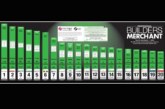
It has been four years since the Grenfell Tower fire, which claimed 72 lives. The inquiry is continuing, and the English building regulations are still largely unchanged. Many in the fire door industry, including DHF, are feeling frustrated at what appears to be slow progress, although with some of the systemic problems that are being addressed, there is hope.
For example, the recent passage of the Fire Safety Act 2021 (covering England and Wales) has clarified the responsibility for fire safety inspections of flat entrance doors. This amends the Regulatory Reform (Fire Safety) Order 2005, specifying that the “responsible person” under the Order is responsible for, among other things, flat entrance doors. Previously, this was not entirely clear. DHF welcomes this clarification, which should serve to improve standards of maintenance. The industry is rising to the challenge, with one outcome being an upsurge in demand for fire door inspection training. DHF has seen this increase in demand first hand. It works collaboratively with the BRE Academy to provide a series of training courses, one of which is fire door inspection. So far this year, there have been thirty-seven courses delivered and a raft of online courses taken.
The importance of fire door maintenance has been confirmed by recent evidence to the Grenfell Inquiry, in which it was revealed that inspection of the flat entrance doors in Grenfell Tower generally took place only when a resident moved out or during major work programmes. Following the fire, it was discovered that approximately two thirds of the door closers were broken or missing. This led to some fire doors remaining open and, undoubtedly, played a part in the tragic loss of life.
Shocking disclosures from building materials manufacturers at the Inquiry have preceded the recent creation by the government of an independent review of the construction products testing regime. Evidence at the Inquiry has suggested that the existing system made it too easy to cheat and, again, DHF welcomes a more rigorous and thorough approach.
“We look forward to cooperating with the review and continuing to promote third-party certification of fire doors as part of the solution to this problem,” says DHF’s General Manager, Michael Skelding. The review is headed by Paul Morrell OBE and Anneliese Day QC.
Product information is the focus of another initiative supported by DHF: the Code for Construction Product Information (CCPI), which is due to be launched later this year. This has been created by the Construction Products Association (CPA) to help ensure that information about construction products is always clear, accurate, up-to-date, accessible and unambiguous. The code, while voluntary, is supported by major contractors, which will help to ensure its success.
“DHF is delighted to be able to play a part in these various initiatives, whether led by government or industry, which are helping to improve the construction industry’s competence,” concludes Michael. “It should also lead to the availability on the market of correctly tested products, accompanied, of course, by accurate performance data.”









